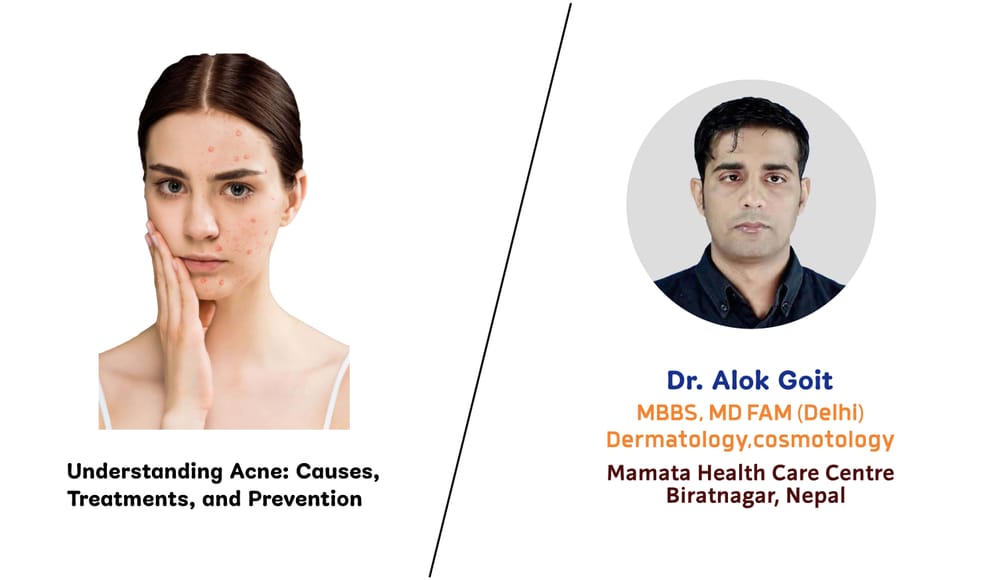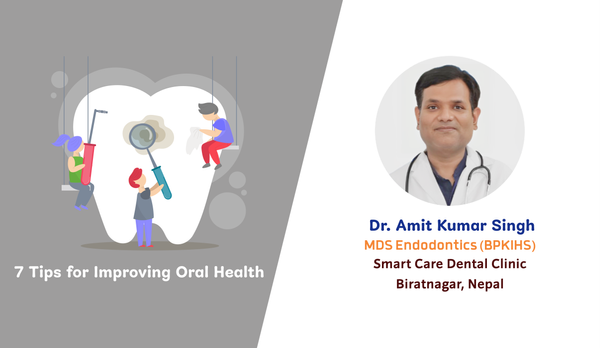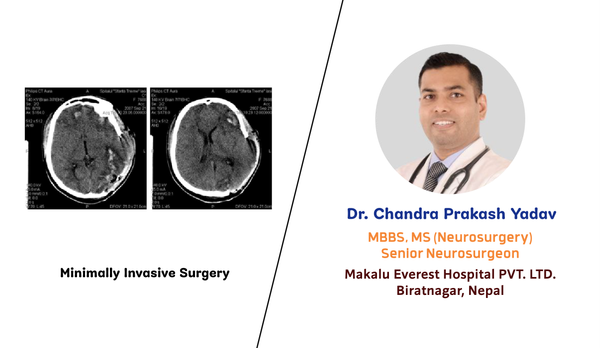Understanding Acne: Causes, Treatments, and Prevention
Acne is one of the most common skin conditions that affects millions of people worldwide, regardless of age or gender. From teenagers navigating puberty to adults dealing with hormonal changes, acne can be persistent and frustrating. In this comprehensive guide, we delve into the causes, effective treatment options, and preventive measures recommended by Dermatologist Dr. Alok Goit to help you understand and manage acne effectively.
What Causes Acne?
Acne develops when hair follicles in the skin become clogged with oil and dead skin cells. This blockage creates an environment where bacteria can thrive, leading to inflammation and the formation of pimples. Several factors contribute to the development of acne:
- Excess Oil Production: Hormonal changes, particularly during puberty or pregnancy, can stimulate the sebaceous glands to produce more oil (sebum), which can clog pores.
- Dead Skin Cells: When skin cells shed more rapidly and clump together, they can mix with sebum and form a plug in the follicle.
- Bacteria: Propionibacterium acnes (P. acnes), a type of bacteria that lives on the skin, can multiply in clogged pores and contribute to inflammation.
- Hormonal Changes: Fluctuations in hormone levels, such as during puberty, menstruation, or hormonal disorders like polycystic ovary syndrome (PCOS), can trigger acne outbreaks.
- Dietary Factors: Some studies suggest that certain foods high in carbohydrates and dairy products may exacerbate acne in some individuals.
Effective Treatment Options
Treating acne involves a combination of topical treatments, oral medications, and sometimes procedures to manage symptoms and prevent future breakouts. Dr. Alok Goit recommends the following treatment options based on the severity and type of acne:
1. Topical Treatments
- Benzoyl Peroxide: A common ingredient that kills bacteria and reduces oil production.
- Salicylic Acid: Helps to unclog pores and prevent new acne lesions.
- Retinoids: Derived from vitamin A, retinoids help to regulate cell turnover and prevent clogged pores.
2. Oral Medications
- Antibiotics: Oral antibiotics can reduce inflammation and control bacteria when acne is moderate to severe.
- Hormonal Treatments: For women with hormonal acne, oral contraceptives or anti-androgen medications may be prescribed to regulate hormone levels.
3. Procedures
- Chemical Peels: Exfoliate the skin and help unclog pores, promoting clearer skin over time.
- Laser Therapy: Targets acne-causing bacteria and reduces oil production.
4. Lifestyle and Home Remedies
- Cleanse Gently: Use a mild cleanser twice daily to remove excess oil and debris without irritating the skin.
- Avoid Squeezing Pimples: Picking or squeezing acne lesions can worsen inflammation and lead to scarring.
- Sun Protection: Use oil-free sunscreen to protect acne-prone skin from sun damage, which can worsen acne scars.
Preventive Measures
Preventing acne requires a proactive approach to skincare and lifestyle choices. Dr. Alok Goit emphasizes the following preventive measures:
- Maintain a Consistent Skincare Routine: Cleanse, tone, and moisturize daily using products suitable for acne-prone skin.
- Avoid Triggering Factors: Identify and avoid factors that worsen acne, such as certain cosmetics, tight clothing, and stress.
- Eat a Balanced Diet: Incorporate foods rich in antioxidants, vitamins, and minerals, and limit intake of sugary and processed foods.
- Manage Stress: Practice stress-reducing techniques like yoga, meditation, or exercise to help prevent hormonal fluctuations that can trigger acne.
Conclusion
Acne is a treatable condition, and with the right approach, you can effectively manage symptoms and achieve clearer, healthier skin. By understanding the causes of acne, exploring treatment options recommended by dermatologist Dr. Alok Goit, and adopting preventive measures, you can take proactive steps towards clearer skin and improved self-confidence. Remember, each individual's skin is unique, so consult with a dermatologist to develop a personalized acne treatment plan tailored to your specific needs.




